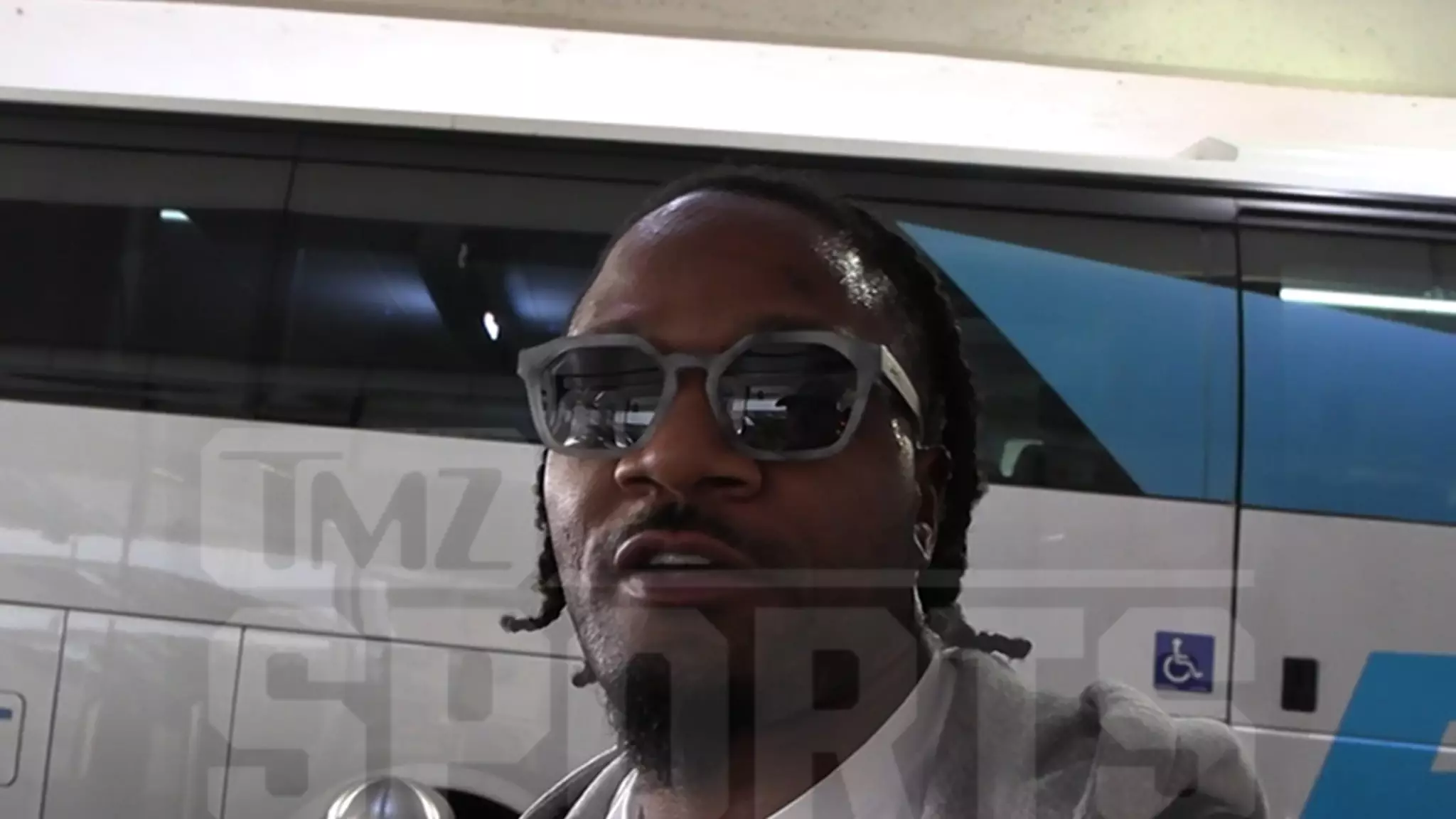In a highly scrutinized political climate, the tradition of sports teams visiting the White House after championship victories has become a topic of heated debate. Recently, President Donald Trump extended an invitation to the Philadelphia Eagles, reigniting conversations about athletes’ personal beliefs and the expectations placed on them during celebratory moments. This situation mirrors a broader societal issue where individuals are often faced with the dilemma of engaging in traditional ceremonies while navigating their political views. The potential absence of key players from this event has stirred controversy, raising questions about the intersection of sports, politics, and individual agency.
In the wake of this invitation, former NFL player Pacman Jones weighed in, asserting that all members of the Eagles should seize the opportunity to visit the White House, regardless of their political affiliations. Jones views this visit as an integral part of the championship experience, emphasizing the notion that professional athletes should embrace tradition. His point highlights the often-underestimated power of symbolism in sports culture—where winning the Super Bowl is not just about the trophy, but also about the unity and recognition that follows.
However, many players harbor strong feelings toward political figures, which complicates the ideal of unity. Jones’ argument, while compelling, may oversimplify the intricate relationship between personal beliefs and professional duties. Many players may feel that attending could undermine their values or alienate fans who share differing opinions. This dilemma encapsulates the ongoing struggle within sports: the expectation for athletes to be apolitical figures in a world where their platforms carry immense influence.
The conversation surrounding the Eagles’ potential decision to skip the White House visit reflects a significant cultural shift in how athletes engage with their platforms. While there was once a tacit understanding that winning teams would simply fulfill their obligations to the president, contemporary players are increasingly prepared to stand firm in their beliefs, often choosing activism over tradition. The unity that comes with a championship can be overshadowed by differing political ideologies, creating a rift among teammates.
Jones’ assertion that players should “suck it up” overlooks the nuanced environment in which these decisions are made. Just as individuals in the workplace often encounter leadership they do not personally support, it’s important to acknowledge that the experience of marginalized communities and athletes can differ significantly. Refusing the invitation may be seen as a rejection of the norm, but it also serves as a powerful statement regarding individual principles.
While the whispers of dissent among Eagles players regarding the invitation are palpable, the opportunity to visit the White House should not be dismissed lightly. In the fast-paced, ever-evolving landscape of professional sports, such occasions may not present themselves frequently. This visit represents more than just a nod to tradition; it serves as a moment to reflect on individual paths and collective achievements.
As Jones noted, five years down the line, the opportunity might not present itself again. The experience of being summoned to the White House is a rare honor that transcends political divides—at least on the surface. Ultimately, players will need to balance personal beliefs with the legacy they wish to leave behind; the decision to attend or abstain from this momentous occasion will undoubtedly reverberate beyond the political landscape, influencing the discourse surrounding sports and societal values for years to come.

